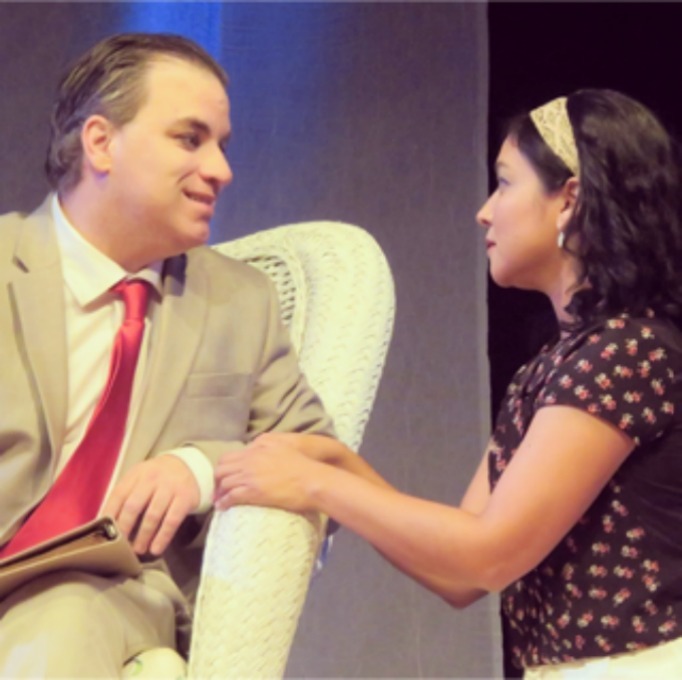Review: FOREVER YOURS, JULITA at Tallahassee Hispanic Theater

With curtains billowing so gently our eyes almost felt tricked, Forever Yours, Julita lured a small but enthusiastic audience into the story of Puerto Rican poets Luis Llor?ns Torres and Julia de Burgos at the play's Tallahassee premiere on January 25.
Spanning 1914-1920 (Act I) through 1940-1942 (Act II), Forever Yours, Julita is more than a story of how two people navigate art, love, anger and betrayal. The play incorporates the history of Puerto Rico as well as themes common in Latin American culture.
Playwright Roberto Ramos-Perea wrote in a program note, "The love-affair between Puerto Rican poets Julia de Burgos and Luis Llor?ns Torres serves as a whirlwind of metaphors for what love, politics and verse can become."
Love, politics and verse are three hefty components to pack together into one humble black box theater. By the end of the show, I had tuned out the sound of trains passing nearby and found myself wrapped up in how the story of Luis and Julia would end.
Kevin Carr's Luis set the poet's arrogant, edgy, mercurial tone early on. His ability to modulate his voice between caressing whispers and anger brought depth to his depiction of Luis.
Alejandra Gutierrez as Julia achieved the difficult task of aging 20 years over the course of the play, believably. Her childish buoyancy and determination to get Luis to read her poetry while simultaneously accusing him of blind ambition at the beginning juxtaposes with the journey she takes through activism to a decidedly deflated adulthood. Gutierrez's particularly facile expressions were a delight to watch.
Robin Jackson, "La Gringa," served a critical symbolic role in the play, representing non-Latino interests, the sparkly lure of temporary diversions, and the fact that Julia would always be competing with someone or something for Luis' affections.
This play presented itself with the intimacy that comes from having a cast of three (with the third cast member, La Gringa, on stage minimally). Our proximity to the stage due to the relatively small capacity of the venue made me feel as though I was in the room with the characters.
In addition to the relationship dynamics that play such a primary part of the viewing experience, I recommend learning a bit about Puerto Rican history before going, as that will help you comprehend the references made and the symbolism of La Gringa. The program does provide a brief review of the related history. Although I am hardly an expert in the history of Puerto Rico, it's safe to say that Puerto Rico, which began to be controlled by the US in 1900, suffered an earthquake in 1918 and experienced its share of hurricane damage and the struggle to rebuild. Political efforts ranged from the founding of the Socialist Puerto Rican Party in 1920 through the Democratic Popular Party in 1938. Knowing the history is not a deal breaker for viewing the play, but does give an additional layer of insight.
More important than knowing the political background, is the willingness to think about what matters most in love and art. Is it ambition? ("There is no honesty in ambition," says Luis.) Is it a hunger for a life lived adventurously? ("Don't dare write what you don't dare live," Luis tells Julia early in their relationship.) How does time and experience change us? ("I'm at an age where I don't think, I do," says adult Julia.)
As a female viewer, frankly there were multiple points throughout the play when I wanted to throttle Luis. Be prepared to be confronted with issues regarding men, women, and what it takes to get ahead (and anticipate some parallels with current times).
Forever Yours, Julia was produced by Tallahassee Hispanic Theater. It previously ran at the Monticello Opera House. It is directed by Brian Walker.
Photo credit: Dana Weber.
Reader Reviews

Videos
